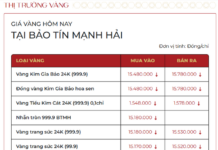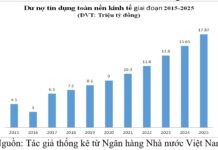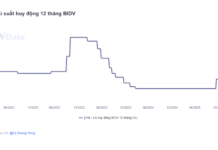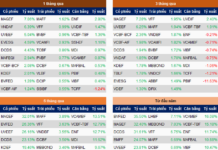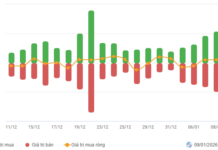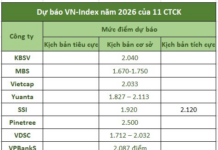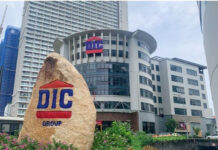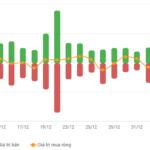“Concerns Over Real Estate Pricing in Vietnam: Calls for Reform and Standardization”
These concerns were raised by Mr. Nguyen Van Dinh, Vice President of the Vietnam Real Estate Association (VNREA), during a recent seminar. Mr. Dinh pointed out the shortcomings in the way land prices are calculated based on the principle of market-based pricing. Due to the lack of clear distinction between primary and secondary land prices, there are areas where infrastructure has not yet been invested in, but a common price list is still issued.
Especially in some areas with signs of speculation and price inflation, these inflated prices are then used as a benchmark for land pricing, inadvertently legitimizing “virtual prices.”
“This situation increases the land-related financial obligations of businesses and drives up real estate prices. Consequently, home ownership becomes increasingly out of reach for ordinary citizens,” analyzed the Vice President of VNREA.
Regarding land prices, Mr. Nguyen Quoc Hiep, Chairman of the Vietnam Contractors Association (VACC) and Chairman of GP. Invest, shared the story of a project in Hanoi.
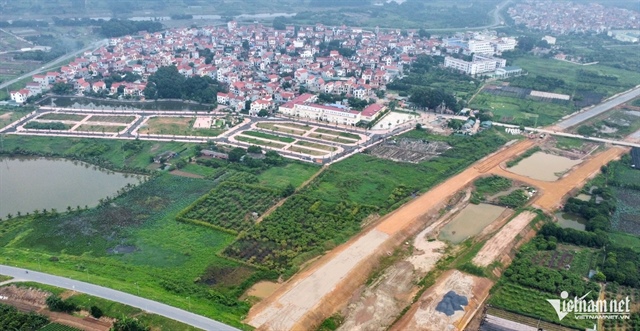 Land price issues are considered one of the “bottlenecks” in today’s real estate market. Photo: Hong Khanh |
In the first land allocation decision for an area of over 7 hectares, the enterprise had to pay land use fees within 30 days. By the second land allocation decision (8.4 hectares), the land price had increased by 20% compared to the first, and by the third decision (6.7 hectares), it had increased by another 20%.
“Each time land is allocated, the price increases, causing unreasonable cost increases for the business. This is the biggest limitation,” Mr. Hiep said.
He assessed that the abolition of the “specific land price” mechanism and its replacement with an annual land price list, adjusted by a coefficient, is an important step forward. However, there is a need for clear criteria for the issuance of this coefficient.
“Once, a project of our company had to bear a land price coefficient of 2.8 times the announced price list. This number is unreasonable, and without specific standards, it can lead to arbitrary application, creating significant risks for businesses,” Mr. Hiep observed.
What Will the Amended Land Law Supplement?
A notable point raised by Assoc. Prof. Dr. Nguyen Dinh Tho is the significant gap between the land price framework and market prices. This directly affects both citizens and businesses.
In reality, in Hanoi and Ho Chi Minh City, many households face challenges in changing the land use purpose due to financial obligations calculated based on extremely high price lists. This affects both livelihoods and the investment environment.
Therefore, Mr. Tho believes that special attention should be given to land finance policies to ensure that citizens’ financial obligations are reasonable and that there is a mechanism to support businesses.
He also emphasized the importance of building a modern land database. “When land files, planning information, and land use plans are digitized and integrated, management efficiency will improve, administrative procedures will be simplified, transparency will increase, and negative factors will be limited,” Mr. Tho noted.
Speaking at a recent seminar, Mr. Vo Anh Tuan, Deputy Director of the Land Management Department (MARD), said that there are many significant issues that the ministry will propose to adjust in the amended Land Law. One important content is land use planning. Regarding land retrieval, compensation, and resettlement support, it is proposed to supplement some cases beyond the law to resolve difficulties for people and businesses.
Additionally, issues related to land allocation and leasing will be amended, addressing inconsistencies arising from the transition from a three-tier to a two-tier local model with clearer delegation and empowerment.
Mr. Tuan also mentioned that the implementation of the 2024 Land Law revealed challenges in land valuation. It is crucial to calculate a reasonable and satisfactory compensation plan for the people to ensure their rights and limit complaints while fostering social consensus.
Hong Khanh
– 06:15 22/08/2025
“Ho Chi Minh City Reassesses Land Prices for Three Build-Transfer Projects in Thu Thiem New Urban Area”
The three build-transfer (BT) projects in the Thu Thiem New Urban Area are undergoing a land value reassessment by the People’s Committee of Ho Chi Minh City. These projects, which were under the inspection of the Government Inspectorate, involve a reevaluation of the land already compensated to the investors.
“Sumitomo and BRG Join Forces to Develop a $4.2 Billion Smart City in Hanoi”
The Japanese conglomerate, Sumitomo Corporation, in collaboration with BRG Group, is set to embark on a monumental journey with the development of a $4.2 billion smart city project outside Vietnam’s capital. This long-awaited initiative underscores the Japanese giant’s unwavering faith in the country’s real estate sector and its potential in the Southeast Asian region.
The High Cost of Changing Land Use: A Burden on Livelihoods
“Recently, numerous households in Hanoi and Ho Chi Minh City faced challenges when attempting to change the purpose of their land use. “






